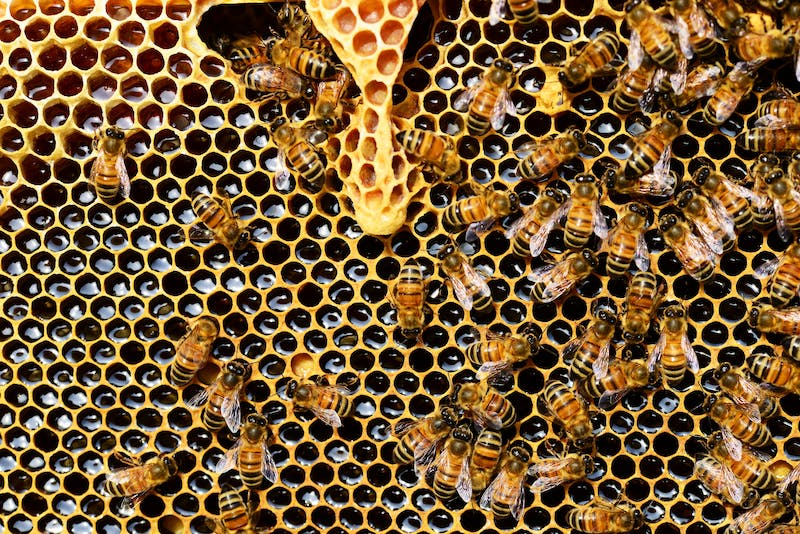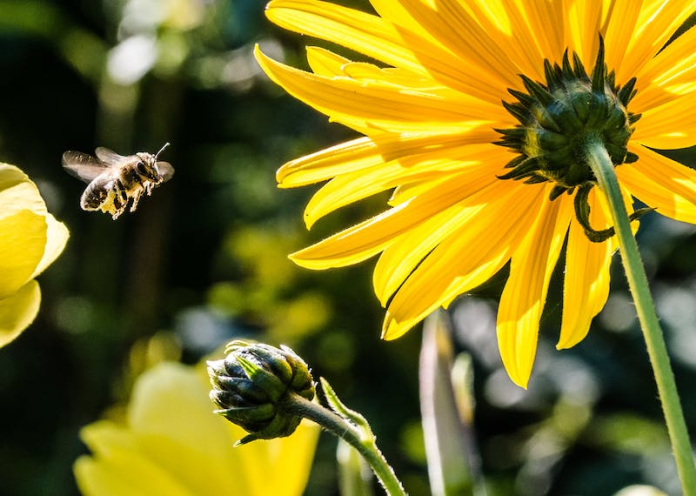If you have a garden and want to enhance it, consider raising honey bees. Some people may wonder how bees can contribute to a thriving garden. These magnificent insects play an important role in the environment.
They can also be a great source of income for you. You only need the knowledge and tools to harvest their potential. This article aims to educate on the wonders of beekeeping and how it can contribute to your garden and flowers.
Key Benefits of Beekeeping
While beekeeping is less mainstream than other hobbies, it’s still a viable option for many gardeners. Here are some of the key benefits of beekeeping.
● Raising Bee Population
Aside from earning a good deal of money from the honey bees produce, you can help the environment by growing the population of these busy insects.
In the past few years, the number of bees has declined due to human factors, such as pollution and the destruction of their habitats.
By setting up hives all over your garden, you help bees thrive in this world and increase the pollination levels in your area. This will help the flowers and crops in your garden in the long run.
● Consistent Honey Production
A steady supply of honey is one of the best benefits of raising bees in your garden. Honey is a healthy sugar source. It is far more beneficial than cane sugar and has great skincare uses. Many people use honey in their daily lives, making it a very valuable commodity.
● Beeswax Production
Bees also produce beeswax, which you use to create various products, such as candles, lip balms, soaps, deodorants, and other personal-care products.
While bees just secrete this material to build their hives, beeswax is a valuable ingredient for many skincare products and medicines. Bees create beeswax regularly, and you can earn money by selling it or selling products made of beeswax.
● Improve Pollination
Keeping bees in your garden is beneficial for both the bees and the plants. The bees rely on flowers for their nutrition, while the flowers rely on bees to spread pollen and aid in growth.
As bees collect nectar, they also collect pollen on their bodies and transfer it to other flowers as they move from one to another, helping to fertilize and promote growth in the surrounding area.
Did you know that the length of a bee’s tongue can dictate the flowers it prefers? Bees with short tongues prefer shallow flowers because they are easier to access. If you’re raising short-tongued bees, consider growing sunflowers, daisies, and asters. Meanwhile, long-tongued bees favor the opposite. They like to visit deep flowers, such as penstemon, columbine, and honeysuckle.
● Fun and Productive Hobby
Not only is beekeeping a profitable business, but it is also a fulfilling hobby. Setting up hives and caring for the bees is enjoyable and offers a sense of satisfaction.
As a beekeeper, you will also be responsible for monitoring the queen and ensuring that the hive is running smoothly, providing a sense of responsibility and challenge.
Additionally, many beekeeping clubs exist, allowing you to connect with like-minded individuals and expand your social circle.
How to Get Started
Now that you know the benefits of beekeeping, it’s time get started. While maintaining a beehive is not too difficult, you should know these key tips.

● Choose a Fitting Location for Your Hives
Before you invest any money in your beehives, you must check your garden for the best location. If you place a beehive on your property, it should be far away from human communities.
Placing beehives too close to populated areas can increase the risk of bees becoming agitated and potentially attacking people. Additionally, if the hives are in an easily accessible location, there is a higher chance of honey and beeswax being stolen.
It’s important to consider these factors and choose a suitable location for your hives that balances the bees’ needs and the surrounding community’s safety.
● Get Bees for Your Garden
When starting a beekeeping garden, it’s important to choose the right type of bees for your area. For example, if live in a state where Varroa mites are common, consider purebred Russian bees for your first hive. They have excellent resistance to Varroa and tracheal mites. There are many different types of bees that can produce a significant amount of honey.
If there are wild bees in your area, you can try transferring them to your garden, but it’s essential to do so in a safe and responsible manner.
This includes finding a healthy colony with a living queen, making sure all foraging bees are safely returned to the hive, and carefully moving the hive to its new location. Alternatively, you can purchase bees from a reputable bee seller.
● Invest in Quality Beekeeping Equipment
Get the right beekeeping equipment. Remember that whenever you harvest honey or beeswax, you will have to brave swarms of territorial bees.
When harvesting honey, you want to get through the swarms without harming them and yourself. By using a high-quality beekeeping starter kit, you will have all the tools you need to start a bee garden of your own.
You should also invest in a beekeeping suit and sturdy gloves to protect yourself when working with bees and harvesting honey.
● Practice Beekeeping Safety Procedures
Harvesting honey from bees can be a hazardous task, as hives can contain hundreds or even thousands of bees. To ensure safety, it’s important to follow proper beekeeping procedures and take necessary precautions.
One important rule is to establish a no-trespassing policy, as unauthorized individuals entering the beekeeping area can agitate the bees. They may put themselves at risk of getting stung, and some may even steal honey or harm your bees. To prevent this, consider building a fence or wall around your beekeeping area to keep out intruders.
● Ask Experts for Help
As a beginner beekeeper, it’s essential to seek assistance and guidance from experts in the field. Beekeeping is a complex endeavor that requires knowledge and experience, and consulting with experienced apiculturists can provide valuable insights and support. They are often willing to help and provide guidance for your beekeeping journey.













